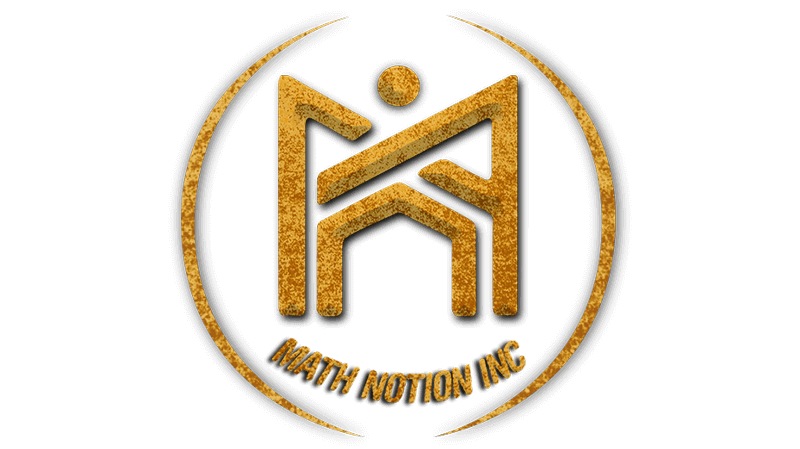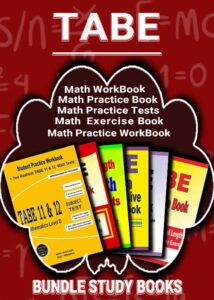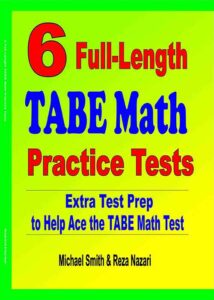
Study Time: 2minutes
What is TABE 11 and 12?
The Test of Adult Basic Education (TABE) is a diagnostic assessment used to evaluate adult learners’ academic skills and knowledge. TABE 11 and 12 are the latest versions of this test, designed to provide more accurate and comprehensive assessments aligned with modern educational standards. This article explores the purpose, structure, and significance of TABE 11 and 12 for adult learners and educators.
Purpose of TABE 11 and 12
TABE 11 and 12 are widely used in adult education programs, workforce development, and other educational settings to assess the skills of adult learners in key academic areas. These assessments help identify learners’ strengths and areas for improvement, guiding instructional planning and support.
Assessing Academic Proficiency
TABE 11 and 12 are designed to assess the basic academic skills of adult learners in reading, mathematics, and language. These skills are crucial for success in further education, training programs, and the workforce.
Guiding Instruction
The detailed diagnostic information provided by TABE 11 and 12 helps educators tailor their instruction to meet the specific needs of each learner. This targeted approach improves the effectiveness of adult education programs.
Supporting Educational and Career Goals
By identifying areas where learners need improvement, TABE 11 and 12 support achieving educational and career goals. Whether preparing for the GED, enrolling in postsecondary education, or entering the workforce, these assessments provide valuable insights for planning and progress.
Structure of TABE 11 and 12
Content Areas
TABE 11 and 12 cover three main content areas:
- Reading
- Mathematics
- Language
Each content area is designed to assess specific skills and knowledge essential for adult learners.
Reading
The reading section evaluates comprehension, interpretation, and analysis of various texts. It includes questions on:
- Literal comprehension
- Inferential comprehension
- Evaluative comprehension
- Vocabulary in context
Mathematics
The mathematics section assesses numerical operations and problem-solving skills. It is divided into two parts:
- Mathematics Computation: Focuses on basic arithmetic operations such as addition, subtraction, multiplication, and division.
- Applied Mathematics: Involves more complex problem-solving using mathematical concepts in real-world contexts.
Language
The language section evaluates grammar, punctuation, sentence structure, and writing skills. It includes:
- Sentence formation
- Paragraph development
- Usage and mechanics
Levels and Forms
TABE 11 and 12 are available in multiple levels and forms to accommodate the varying proficiency levels of adult learners. The levels range from Literacy (L) to Advanced (A), ensuring that the assessments are appropriate for learners at different stages of their educational journey.
Scoring and Reporting
Scale Scores and NRS Levels
TABE 11 and 12 use scale scores to measure learners’ proficiency. These scores are aligned with the National Reporting System (NRS) levels, which are used to track progress and report outcomes in adult education programs. The NRS levels range from Level 1 (Beginning Literacy) to Level 6 (Advanced).
Diagnostic Reports
The detailed diagnostic reports generated by TABE 11 and 12 provide comprehensive information about learners’ strengths and weaknesses in each content area. These reports help educators develop individualized learning plans and monitor progress over time.
Significance of TABE 11 and 12
Alignment with College and Career Readiness Standards
TABE 11 and 12 are aligned with the College and Career Readiness Standards (CCRS), ensuring that the assessments reflect the skills and knowledge needed for success in higher education and the workforce. This alignment makes the test relevant and valuable for adult learners pursuing various educational and career pathways.
Flexibility and Accessibility
The assessments are designed to be flexible and accessible, offering both paper-based and computer-based formats. This flexibility accommodates adult learners’ diverse needs and preferences, making it easier for them to participate and succeed.
Supporting Data-Driven Instruction
The diagnostic information TABE 11 and 12 provide supports data-driven instruction, enabling educators to make informed decisions about teaching strategies and interventions. This approach enhances the quality of adult education programs and improves learner outcomes.
FAQs
What is the purpose of TABE 11 and 12?
These tests aim to assess adult learners’ academic proficiency in reading, mathematics, and language. The assessments provide diagnostic information to guide instruction and support educational and career goals.
What content areas are covered by TABE 11 and 12?
These tests cover three main content areas: Reading, Mathematics (including Mathematics Computation and Applied Mathematics), and Language.
How are TABE 11 and 12 scored?
These tests use scale scores to measure proficiency aligned with the National Reporting System (NRS) levels. Detailed diagnostic reports provide comprehensive information about learners’ strengths and weaknesses.
Why are TABE 11 and 12 significant for adult learners?
These significant versions align with College and Career Readiness Standards, offer flexibility and accessibility, and support data-driven instruction. These features make the assessments relevant and valuable for adult learners and educators.
How do TABE 11 and 12 support instructional planning?
The detailed diagnostic information provided by these tests helps educators tailor their instruction to meet the specific needs of each learner. This targeted approach improves the effectiveness of adult education programs.
Are TABE 11 and 12 available in different formats?
Yes, these tests are available in both paper-based and computer-based formats, offering flexibility to accommodate adult learners’ diverse needs and preferences.
TABE 11 and 12 are essential tools for assessing adult learners’ academic skills and knowledge. By providing detailed diagnostic information and aligning with modern educational standards, these assessments support effective instruction and help learners achieve their educational and career goals. Understanding the purpose, structure, and significance of TABE 11 and 12 can enhance adult education programs’ effectiveness and improve learners’ outcomes.




